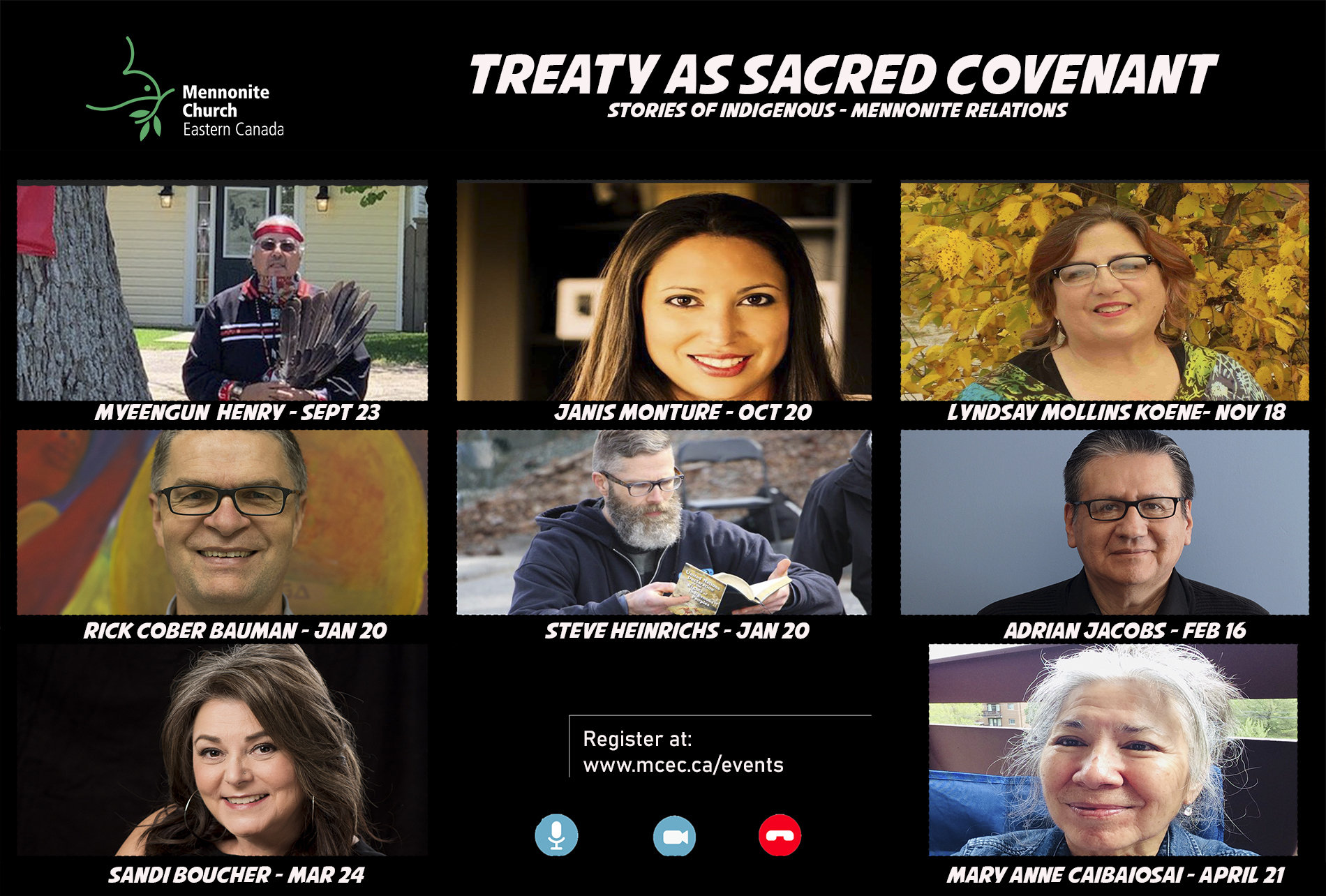Statement re: Colonial Violence Against Land Defenders at
1492 Landback Lane near Six Nations and Caledonia, Ontario
March 2, 2021
For Immediate Release
Mennonite allies say to Government, Courts and Police: We Are Watching.
No Colonial Violence Against the Land Defenders at 1492 Landback Lane
Today, many Mennonites are calling on government, police and courts to end colonial violence against Indigenous Land Defenders at 1492 Landback Lane (near Six Nations and Caledonia).
The Land Defenders recently removed road blockades that they put up in October 2020 to protect themselves after Ontario Provincial Police fired rubber bullets and used Tasers against them. The Land Defenders removed the barriers in February as a good faith gesture, but in the absence of those defenses, there is grave concern for their safety. Last week, a young woman who was at 1492 Land Back Lane this past summer, was arrested by Ontario Provincial Police in front of her children. “The Land Defenders have already been subject to arrests and intimidation and have been fired upon by police. We do not want to see a repeat of the raid by riot police that took place under similar circumstances in 2006”, said Scott Morton Ninomiya, chair of the Mennonite Church Eastern Canada Truth and Reconciliation Working Group (TRWG). The pattern of colonial violence perpetrated by government, courts and police against Indigenous People asserting their land rights is repeated with tragic regularity across Canada. It is past time for that pattern to end.
“Police are not the only ones practicing careful surveillance of the 1492 Landback Lane site. We are watching this situation very carefully: as people of faith; as Settlers concerned about Indigenous rights; and as Canadian citizens to whom police and courts are accountable.” said Morton Ninomiya. “We will be vocal and unrelenting in our criticism of any violence against the Land Defenders and we will hold those responsible for ordering violence politically accountable.”
Today the Mennonite Church Eastern Canada Truth and Reconciliation Working Group (TRWG) is sending a letter to Prime Minister Trudeau, Premier Doug Ford, the Ontario Provincial Police and Ontario Provincial Courts. The letter calls on government, courts and police to:
- Refrain from any form of violence against the Land Defenders.
- Stop criminalizing the Land Defenders through injunctions and other legal instruments designed to intimidate them in their pursuit of their rights under the United Nations Declaration of Rights of Indigenous Peoples (to which Canada is a signatory).
- Start real and substantive dialogue to resolve long-standing issues with all stakeholders including the Land Defenders. Primary among these issues is the unresolved land claims on the
1492 Landback Lane site.
“We stand in solidarity with the Land Defenders. We call on the government, police and courts to honour the Haldimand Proclamation and Haudenosaunee sovereignty at 1492 Landback Lane”, said Morton Ninomiya. “It is in their power to help bring a peaceful, just and prompt resolution to this conflict in the interest of all concerned. We are watching.”
For more information about MCEC TRWG https://mcec.ca/programs/truth-and-reconciliation
-30-
Media Contact:
Scott Morton Ninomiya
Chair, Truth and Reconciliation Working Group
Mennonite Church Eastern Canada
Phone: 519-501-7331
Email: scottdmn@gmail.com
